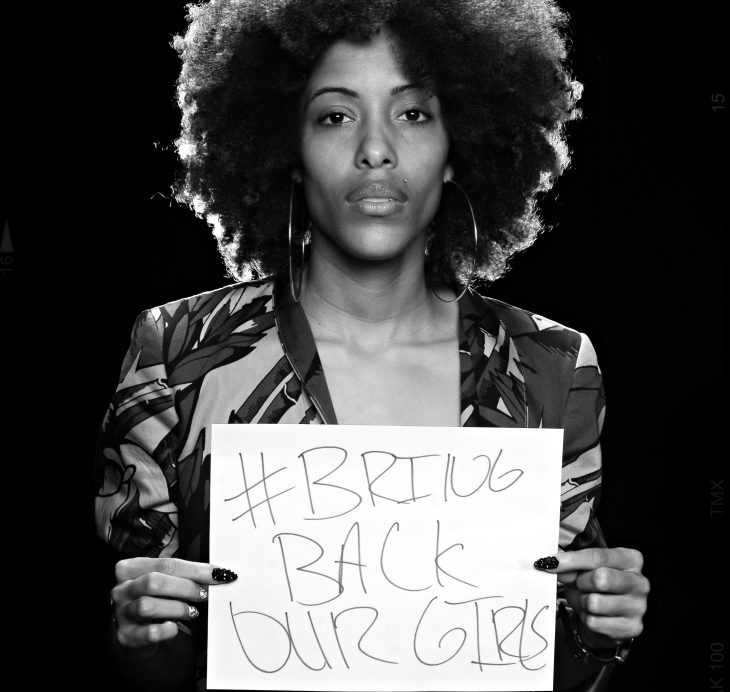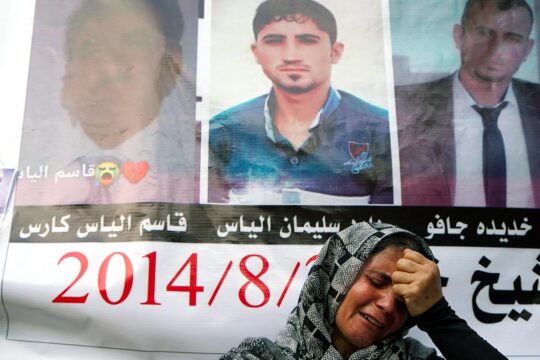In recent times we see a new type of violent crimes emerging, such as those committed by Islamic State (Daech), Boko Haram in Nigeria, in the Central African Republic and by Mexican cartels. The attacks are intense, have no clear political agenda, are mediatized by their perpetrators, and targeted. People are fascinated by the way they flout their cruelty, whilst it makes researchers reflect on the apparent powerlessness of politics and justice to stop them.
“We have the feeling there is nothing in place to stop them,” says Jean-Pierre Massias, President of the Varenne University Institute that organized a seminar on the subject in Paris on June 12. He speaks of the “poison of impunity”.
Very quickly, the novelty of this mediatized violence wears off and it almost ceases to shock us. What is really new now, said a political scientist speaking at the seminar, is the example of a Boko Haram attack in which they used 600- Euro Chinese Kasea motorbikes to attack villages. And there is another thing. These attacks do not produce a very high number of victims compared with more “classic” wars which use air power, but they produce a relatively higher proportion of civilian victims.
In Nigeria, for example, where the Biafra war left between 100,000 and 1 million victims according to estimates, the direct victims of the current conflict are not more than 18,000 dead since 2009, and many of these deaths cannot be directly attributed to Boko Haram. According to journalist Nicolas Hénin, a Middle East specialist, Daech is all the more motivated to flout its barbarity because with only about 30,000 estimated victims it is way behind the Syrian government, responsible, according to the UN, for some 300,000 deaths.
Violence in the Central African Republic has left between 3,000 and 6,000 people dead, according to the UN. As for the war against drug cartels in Mexico, it has left more than 50,000 dead.
"Destroy everything... and eat what’s left"
So although cruel and bloody, this “extreme violence” does not, a priori, constitute mass crimes. But, according to Nicolas Hénin who cites Iraq, it points to a “criminal failing of the State”. In the Central African Republic, according to Enoch Tompte-Tom, violence has been infiltrating through all the pores of its borders since the fall of Bokassa in 1979. And this has escalated with the fighting between Seleka and Anti-Balaka and the “flaunting of violence”. “Before, killing with machetes was OK, even if you couldn’t say it was good,” he says. “But they have started to cut the bodies up, to burn them, to eat them. To reduce the other to nothing. The spirit, the body, destroy everything…and eat what is left.” Cruelty that is perhaps seen as “necessary” to state your difference with the other when it is your neighbour that becomes your enemy.
The absence of rule of law makes us think also of the Mexican territories controlled by cartels and armed groups. “If there is something that competes with the rule of law, it’s cronyism,” says sociologist Jean Rivelois. Before Mexico, under pressure from the US, declared war on the drug cartels, the drug traffickers paid an informal tax to the authorities. A system he says helped pacify social relations. But now he says this “corrupt form of law” has gone out of the window, and in its place there is war and opportunistic agreements between the cartels, with border towns like Tijuana. “In Mexico today, either one is corrupt or one supports state violence, so one way or the other, this is not the rule of law,” he says.
Echoing this thought, Olivier Mongin describes a globalized world which makes “the contract more important than the law, generating a world where personal allegiances are in the process of becoming central again”. And responses to this appear weak. Sonia Le Gouriellec, Africa researcher at the French Defence Ministry, says “state building” policies have failed. Or they are inadequate. Philosopher Michel Terestchenko says the “profound vulnerability of democratic societies” makes it react to terrorism with “systematic violations of the law, from torture to drones and electronic surveillance”. “When the rule of law is not respected,” he says, “it is the very spine of our societies that is shaken.”
Rule of law undermined
On the legal level, this “extreme violence” constitutes crimes that definitely fit into known judicial categories, says Xavier Philippe, Professor of Public Law at the University of Aix-Marseille. But he doubts strongly that there is a way to respond through the courts to these types of crimes. “The way to deal with it is not necessarily through the courts,” he says. “We know we cannot try everyone and certainly not straight away. Victims also want reparations, to know the truth about what happened.” So a form of transitional justice, adapted to the context, is necessary, while at the same time being aware of its limits.
The key thing highlighted by this debate seems to be an absence of concerted political strategy to combat this extreme violence. Which seems, according to researchers, to explain the inadequate response of so-called “strong states”. In his summing up, Secretary General of the High Institute for Justice Studies (IHEJ) Antoine Garapon asked what will become of democracies “that cannot be content with a judicial response", since for this they need a political project.





